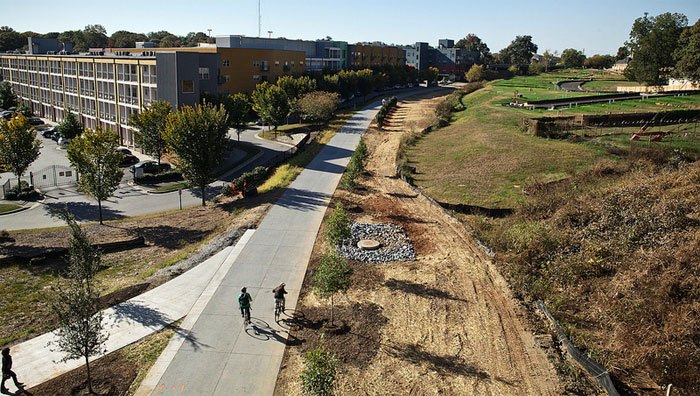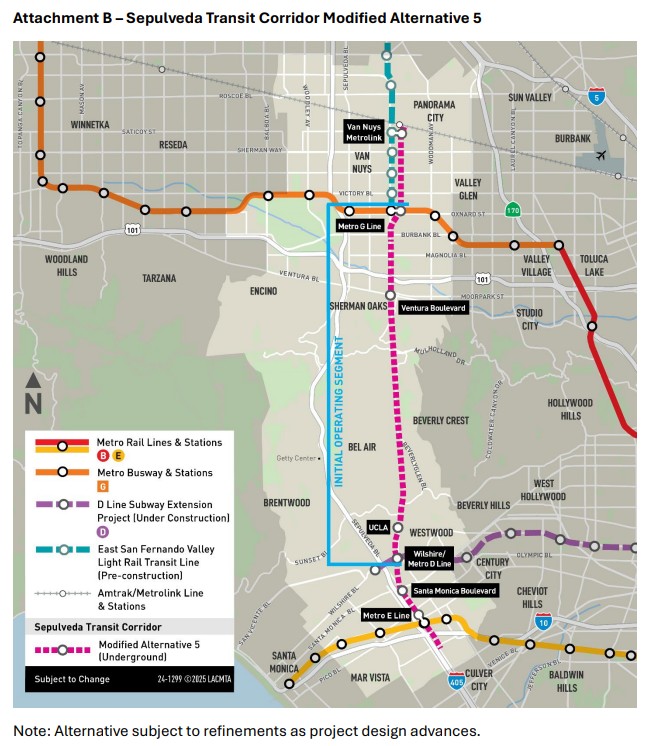Atlanta voters passed two new taxes in November -- each promising important mobility benefits.
One sales tax increase will provide $2.5 billion for badly needed transit upgrades, while a separate $300 million sales tax measure will fund complete streets and projects along the BeltLine -- a ring of trails, parks, and possibly transit encircling downtown Atlanta.
Now that those projects are on the way, advocates want to ensure the people who supported the investment will be able to benefit from it.
Nathaniel Smith at the Partnership for Southern Equity is leading a campaign to reserve 5 percent of the transit money -- about $120 million -- for a fund to subsidize housing near transit.
"For 40 years, low wealth communities and communities of color... have subsidized MARTA," said Smith. "Without this affordable housing strategy, we’re actually positioning these people who have invested in MARTA and invested in the BeltLine to subsidize their own displacement. We can’t let that happen."
As segments of the BeltLine have been completed, nearby housing prices have shot upwards. A recent Georgia Tech study found that home values within a half-mile of the BeltLine increased 40 to 70 percent between 2011 and 2015, compared with about 17 percent citywide. Smith and the visionary behind the original BeltLine plan, Ryan Gravel, made headlines last year when they quit the board of the nonprofit fundraising arm of the project, citing concerns about gentrification.
Smith said right now MARTA's policy is to make 20 percent of the units in its transit-oriented developments affordable for households making 60 to 80 percent of the area median income, or about $44,000 a year. In exchange for the 20 percent affordability requirement, MARTA increases allowable density and lowers parking requirements for on parcels near its stations. MARTA also occasionally works with HUD to build subsidized housing.
But those policies won't yield enough housing to prevent poorer Atlantans from having to move farther away. That's where the new housing fund would help, says Smith.
The Partnership for Southern Equity and a coalition of nonprofit groups wants to divert 5 percent of the MARTA funds, about $120 million, to establish a "Living Transit Fund," which would scale up the agency's efforts to finance subsidized housing near new transit routes. Developers could use the funding for land acquisition, pre-development costs, or construction costs if they deliver more below-market housing.
The Partnership for Southern Equity estimates the housing fund would produce about 2,500 additional below-market units, affordable to households earning $33,000 a year -- lower than MARTA's current threshold for "affordability." If the fund's resources are paired with federal programs like HUD's Low-Income Housing Tax Credit, as many as 5,400 below-market units could be built.
Smith called the plan one layer of a wider affordable housing strategy that might also include mandatory inclusionary zoning and a separate $250 million housing trust fund from the city of Atlanta.
Smith doesn't think this exact strategy of marrying transit funds directly to subsidized housing has been tried before (although advocates are looking at LA's Metro Match program as a model).
The Partnership for Southern Equity and the TransFormation Alliance, an organization that supports the coordination of affordable housing and transit policy, hope that MARTA and the city will add the trust fund to the memorandum of understanding guiding MARTA and Atlanta's partnership in implementing the new tax.
It's clear MARTA has the legal authority to use its resources to develop housing on land it owns, because the agency already does so. But there is some disagreement about whether MARTA is authorized to do so on land it doesn't own.
Both the Southern Environmental Law Center [PDF] and Emory University's Turner Environmental Law Clinic [PDF] have issued opinions that support the legal basis for the Living Transit Fund. They argue that subsidizing affordable, transit-adjacent housing supports transit use and is within MARTA's broad legal powers. But some officials at MARTA have resisted.
A commitment from Mayor Kasim Reed, MARTA CEO Keith Parker, or the City Council is needed to make the housing fund a reality.
The Partnership for Southern Equity already has the support of council members Andre Dickens and Kwanza Hall and Council President Ceasar Mitchell. All the major mayoral candidates are supportive as well (Kasim Reed is term-limited and a new mayor will be elected in November). The real sticking point is still MARTA.
The Partnership for Southern Equity and it's 15 partner organizations on the Living Transit Fund have been going back and forth about the legal issues with MARTA's staff.
Alex Trachtenberg, who works for Southface, a partner in the affordable housing push, says transit agencies like MARTA -- even though they have a TOD program -- have tended to see their mission as strictly about transit.
Ultimately it's a matter of "political courage," says Smith. "The big question is who are we developing the city for? People we’re trying to attract or also for the people that have been here through the hard times?"







